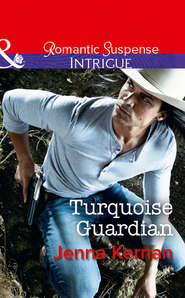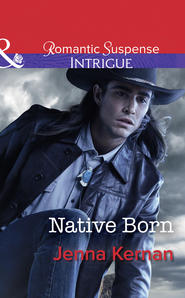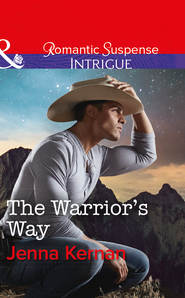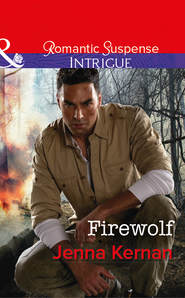По всем вопросам обращайтесь на: info@litportal.ru
(©) 2003-2025.
✖
Warning Shot
Автор
Год написания книги
2019
Настройки чтения
Размер шрифта
Высота строк
Поля
It was hard to believe that such a group might aid foreign terrorists until you recalled your history and cult leader Charles Manson’s attempts to begin a race war by murdering innocent affluent white victims, including Sharon Tate. It was terrifying, the lengths individuals might go to bring about their worldview.
At 7:00 a.m., Rylee left her car on the shoulder and hiked through the woods to a place where she could observe the central compound. Even though she was dressed all in earth colors for camouflage and was wearing a forest green wool sweater and a brown leather jacket atop her gray jeans and brown work boots with thick socks, she had underestimated the chill in the morning air. She had plenty of time to think about her inadequate wardrobe, among other things, as she lay on her belly in the pale green ferns. A cool September breeze shook the leaves overhead, sending down a cascade of yellow leaves through the fog.
“Should have worn a wool cap,” she muttered to herself.
Maple leaves fluttered through the shafts of sunlight, giving hope that the fog would lift, as she watched the compound through binoculars. From this position, she had a clear line of sight to a large crumbling former dairy barn that might have once been yellow, two new prefab outbuildings with metal exteriors and roofs and a weathered farmhouse, looking patchy with the graying wood peeking out beneath flaking white paint.
One of the newer structures was a dock with a covered large boathouse on the St. Regis River that flowed into the St. Lawrence. That structure meant that it was reasonable to assume that the survivalists did leave their land. Did they use their boats to traffic in illegal drugs or human beings? Operations needed funding and she had yet to discover theirs. They were no longer farmers. That much was certain.
Had Stanley Coopersmith headed to court to defend his son?
Her reports on this group said that their leader never left the facility and his younger brothers, Joseph and Daniel, both married with children, rarely left their land. Stanley, who was married to Judy Coopersmith, had two grown boys—Edward, who they called “Eddie,” and Morris, whom she had met on the night of her arrival.
She shivered with the cold as she counted occupants, noted physical descriptions into a digital recorder and snapped shots through her telephoto lens. As the morning stretched on and the sunlight finally reached her, she daydreamed about making a major arrest. Was it possible her runner had left Mohawk land? The Mohawk reservation land ended at the St. Regis River, just a short distance from Coopersmith’s property. Had this been the runner’s destination? The journey along would have been easy overland, or on the St. Lawrence River, with an escort of survivalists.
If she intercepted the shipment from Siming’s Army, her boss would have to promote her. Then Rylee might ask for an assignment in New York City. What would her father think of that?
She sighed. Would he be proud?
The sound of a trigger’s click dropped her from her daydreams like an acorn from an oak and made her stiffen. Her skin flushed hot and her fingers tingled. She held the binoculars; making a grab for her weapon seemed like suicide. Why hadn’t she placed her weapon nearer to hand?
“Lace your fingers behind your head,” came the order from a male voice behind her. The smell of the earth beneath her now turned her stomach and the ground seemed to churn as if heaved by an earthquake.
“Roll over,” ordered her captor.
“I’m a federal agent. Homeland Security.” For once, her voice did not shake.
There was a pause and then the command to roll over again.
She pushed off and rolled, coming to her seat. The man holding a rifle was the brother of the family’s leader—Daniel Coopersmith. She recognized him by his ginger beard and the scar across the bridge of his nose. He held the rifle stock pressed to his cheek and the barrel aimed at her chest.
“Stand up.”
She released her laced fingers as she did so. The blood pounding through her veins made her skin itch. This might be her only chance to reach her weapon. Her only chance to avoid capture.
“Don’t,” he advised.
The roar in her ears nearly deafened her.
He wasn’t taking her. That much she knew, because she was not creating a hostage situation on her first assignment. As she came upright, she swept her leg behind his and knocked him from his feet. As his arms jerked outward in reflex, she seized the barrel of the rifle and yanked. By the time Daniel recovered enough to scramble backward, she had his rifle pointed at him.
“It ain’t loaded,” he said.
She felt the weight of the firearm and gave him a look of disappointment.
“Daniel, have you had any visitors, other than me, recently?”
“What kind of visitors?”
“Smugglers.”
“Anyone crosses our land we know it. Got cameras everywhere. How we spotted you.”
“Your family likes their privacy?”
“We don’t assist illegals if that’s what you mean.”
“Why is that?”
“They’re carriers. Part of the scourge to come.”
She knew the dogma.
“You know your nephew is in court this morning?” she asked.
Daniel curled his fingers around his beard and tugged.
“I knew he run off again. He get arrested?”
“Shoplifting.”
“Comics again?”
She shrugged.
“Stan is gonna tan his hide.”
“Not if he’s in prison. Second offense.”
Daniel seemed to forget she was pointing his rifle at him as he turned to go.
“I gotta go tell Judy.” He glanced at her over his shoulder. “You best git. Leave my rifle on the road by your vehicle. That is if Stan don’t already got your car.”
“Stop.” She had her weapon out and it was loaded.
He stopped and glanced back at her.
“You threatened a federal agent,” she said to her retreating would-be opponent.
“I threatened a trespasser who’s also an agent. We got constitutional rights. Illegal search. Illegal surveillance. Just cause. Illegal seizure.” He continued speaking about rights and threats as he wound through the trees and out of sight.
She watched him go.
As it happened, when she reached her vehicle, she found Stanley Coopersmith waiting with his wife, Judy. Coopersmith was a man in his sixties, silver-haired, slim and muscular with a mustache that would have made any rodeo cowboy proud. His wife’s hair was short and streaked with silver. She had the body of a woman accustomed to physical work and the lined face of a smoker.
Coopersmith did not move the rifle he held resting over his shoulder at her approach. She kept her personal weapon drawn but lowered.
“You holding my boy?”











